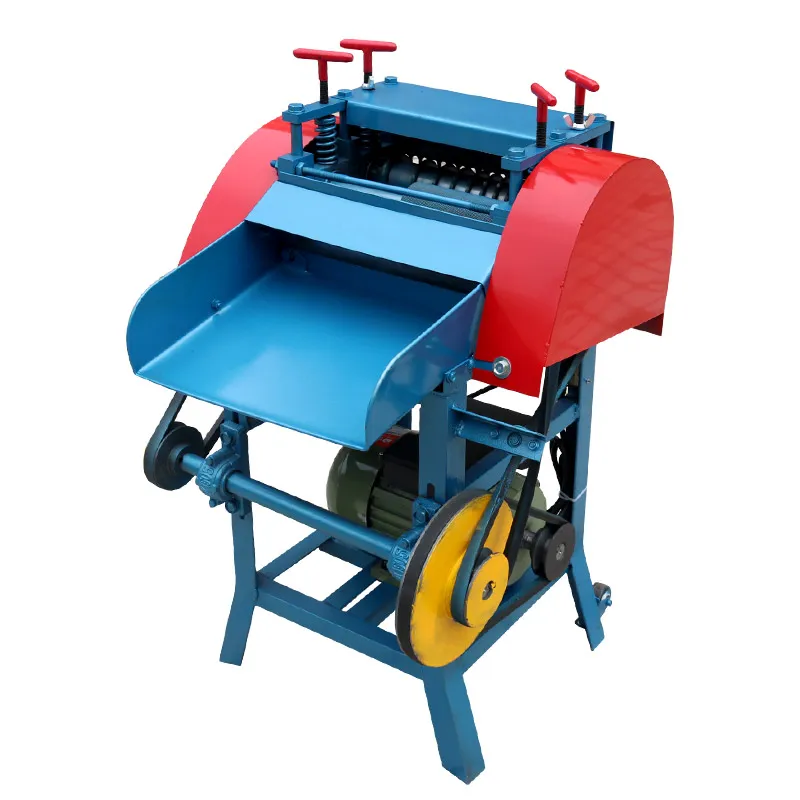

dec. . 07, 2024 13:37 Back to list
The Role of Eddy Current Separator Manufacturers in Modern Recycling Facilities
In an era characterized by increasing environmental awareness and the push for sustainable practices, the recycling industry has become a focal point for innovation and efficiency. Among the array of technologies enhancing recycling processes, the eddy current separator stands out as a pivotal piece of equipment. Its ability to distinguish non-ferrous metals from other materials has made it indispensable in modern recycling facilities. This article explores the role of eddy current separator manufacturers, the technology's functionality, and its significance in the recycling ecosystem.
Understanding Eddy Current Separation
Eddy current separation is a physical separation method that utilizes the principles of electromagnetism to differentiate conductive materials from non-conductive ones. The eddy current separator operates using a rotor with high-speed magnets positioned above a conveyor belt. When non-ferrous metals—such as aluminum, copper, and zinc—pass through the rotor's magnetic field, they induce eddy currents within the metals, creating a secondary magnetic field. This effect causes the metals to be propelled away from the conveyor, allowing for effective separation from other materials, such as plastics, wood, and ferrous metals.
This technology is particularly useful in recycling applications involving household waste, industrial scrap, and even electronic waste, where it is essential to recover valuable metal components. The efficiency of eddy current separators has drastically improved recycling rates and reduced the amount of waste ending up in landfills.
The Role of Manufacturers
Eddy current separator manufacturers play a crucial role in this industry by designing and producing advanced systems tailored to meet the specific needs of recycling facilities. The market is home to various manufacturers, each striving to innovate and enhance the efficiency of their products. These companies invest heavily in research and development to push the boundaries of eddy current technology, focusing on increasing sorting accuracy, improving throughput rates, and reducing maintenance costs.
One of the significant aspects of these manufacturers is their commitment to customization. Different recycling plants have varying requirements based on the types of materials they process and the scale of their operations. Leading manufacturers offer customized solutions that address these unique challenges. This includes the design of rotors, the choice of materials, and the integration of additional technologies such as sensors and AI systems for more precise sorting.

Advancements in Technology
Recent advancements in eddy current separator technology have led to improved performance and greater operational flexibility. Modern systems are now equipped with enhanced magnetic configurations that improve the efficiency of non-ferrous metal separation, even at high speeds. Additionally, the integration of automation and digital monitoring systems allows for real-time analysis, enabling operators to fine-tune processes and maximize recovery rates.
Furthermore, the energy efficiency of these machines has improved significantly, aligning with the overall sustainability goals of recycling facilities. Manufacturers are increasingly focusing on reducing the carbon footprint of their equipment, which resonates well with the growing demand for eco-friendly operations.
Challenges and Future Outlook
Despite these advancements, eddy current separator manufacturers face challenges that need to be addressed to ensure continued growth in the industry. The competition is fierce as new players enter the market, driving prices down while the demand for effective and efficient recycling solutions rises. Manufacturers must stay ahead of technological trends and customer expectations to maintain a competitive edge.
Looking ahead, the future of eddy current separators appears promising. With ongoing developments in materials science and digital technologies, there is an anticipated rise in efficiency and effectiveness. Manufacturers are likely to explore the incorporation of machine learning and artificial intelligence to enhance sorting capabilities further, providing recycling facilities with even more powerful tools for material recovery.
Conclusion
Eddy current separator manufacturers are vital players in the recycling industry, driving innovation and efficiency to meet the demands of a more sustainable future. Their ability to adapt and evolve alongside technological advancements ensures that recycling facilities can optimize their processes and enhance material recovery rates. As society continues to prioritize sustainable practices, the contributions of these manufacturers will remain essential in the quest for an environmentally responsible future. The success of recycling initiatives around the globe depends significantly on the innovations and solutions provided by these key industry players.
Latest news
Troubleshooting Common Eddy Separator Problems
NewsJul.04,2025
The Role of Metal Recycling Plants in Circular Economy
NewsJul.04,2025
The Impact of Recycling Line Pickers on Waste Management Costs
NewsJul.04,2025
Safety Features Every Metal Shredder Should Have
NewsJul.04,2025
How Industrial Shredders Improve Waste Management Systems
NewsJul.04,2025
How Cable Granulators Contribute to Sustainable Recycling
NewsJul.04,2025